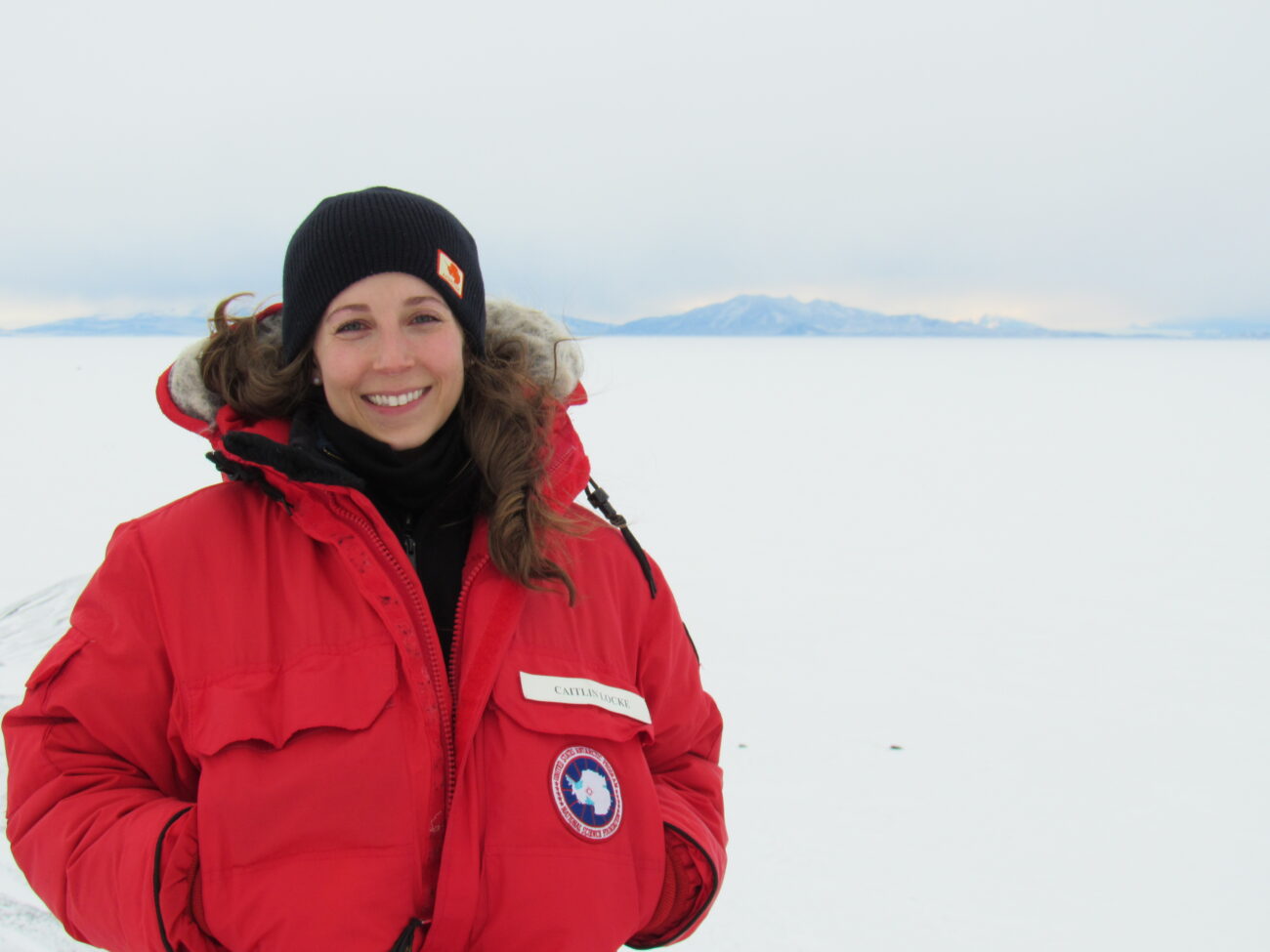Growing up in a family of doctors, Caitlin D. Locke’s interest in science was ignited from a young age. Now, as a Ph.D. candidate in the Department of Earth and Environmental Sciences studying polar geophysics at Lamont-Doherty Earth Observatory, Locke is forging her own path in STEM. Specifically, she is researching the Antarctic Ice Sheet to determine how the bathymetry, or seafloor shape, beneath its ice shelves influences the flow of ice from land to ocean. Locke was also one of the organizers of the “Research as Art” event at Lamont this past fall, which featured her winning video submission, “Venable.”
In this Q&A, Locke discusses the women scientists who showed her what was possible, as well how important mentorship can be while navigating motherhood and later career stages.
How did you get into science?
My parents are both doctors and were science majors in college, so I was exposed to it at an early age through them. They were always enthusiastic about helping me with science projects, taking me and my siblings to science museums and teaching us about the science around us.
Is there a woman in science, from Columbia or otherwise, who inspired you?
The first woman in science that inspired me was definitely my mom, who is a retired physician and high school chemistry teacher. She showed me from an early age that women have a place in science and medicine.
As an undergraduate at Columbia, I was lucky to have many women professors and mentors, namely Maya Tolstoy, Meredith Nettles and Heather Savage, who showed me that I could turn my passion for geology and geophysics into a career. Currently, my Ph.D. advisor, Kirsty Tinto, and my former supervisor, Robin Bell, inspire me to continue to pursue my interests in the cryosphere sciences.
“As a mother of two young children, I also believe targeted support and mentorship during this life-changing time would benefit women’s careers, their science and the institutions where they work.”
How can we continue to support and mentor women scientists?
Through each stage in a woman’s science career, we need to provide targeted support from the institutions they are at, as well as mentorship from other women scientists who are in later stages in their education or career. There is a strong emphasis on support and mentorship for women during their early education, but less as they advance in their education and careers. This could be improved, especially for women in postdocs and pre-tenure positions. As a mother of two young children, I also believe targeted support and mentorship during this life-changing time would benefit women’s careers, their science and the institutions where they work.
Do you have any advice for younger women or girls who are interested in entering the field?
Pursue what interests you and makes you happy!
Source link
Olga Rukovets news.climate.columbia.edu

